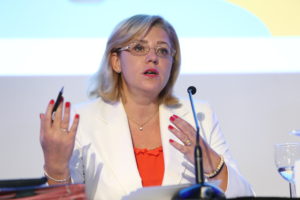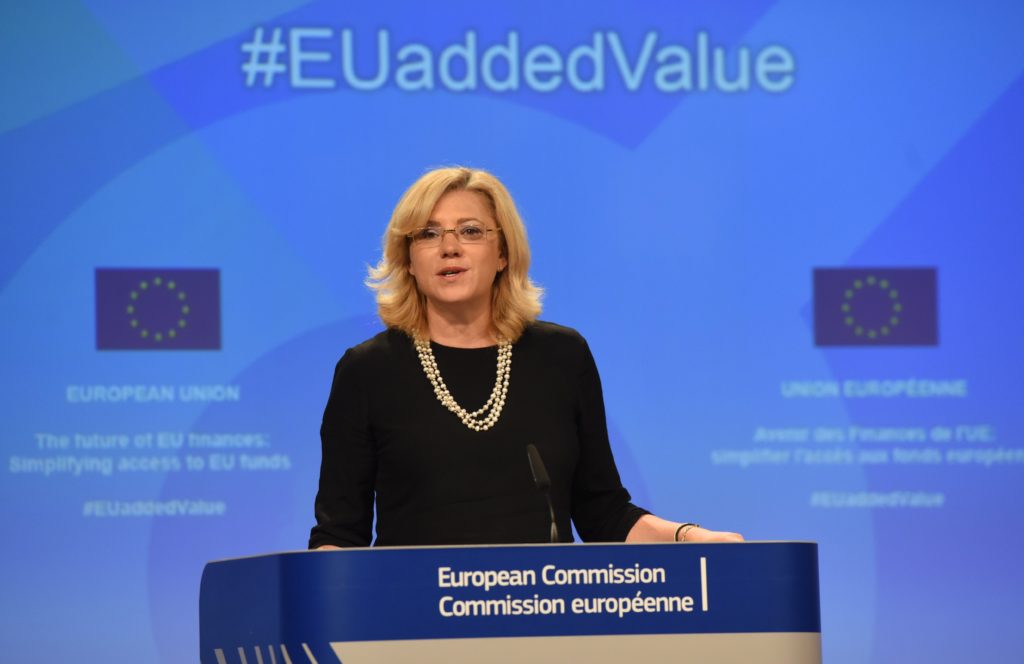 January 2019 will be another milestone in the recent history of Romania: for the first time, it will hold the rotating presidency of the European Council.
January 2019 will be another milestone in the recent history of Romania: for the first time, it will hold the rotating presidency of the European Council.
And I must say that I am proud of this for our country and its 20 million inhabitants, as I see the Romanian presidency of the European Council as the culminating point of a steady process that started with the fall of communism in my country many years go.
The timing is also of importance: indeed, it is expected that it will coincide with the finalisation of the negotiations for Brexit, but as importantly, Romania will steer the discussions within the Council, between the 27 Member States, to reach an agreement on the future EU budgets beyond 2020; this process includes the European Council summit in Sibiu. This presidency constitutes a great opportunity for our country to make a key contribution to the future of Europe and of its citizens, by being the guiding hand behind the adoption of the framework for the 2021-2027 financial period !
I am also proud of my country when I see so many fragmenting forces at work across Europe. Romania remains a beacon of hope in that context. I personally never refrain from meeting young people, in Romania and elsewhere in Europe, to explain to them the asset that Europe is to their future.
I speak from experience: as a teenager, I could only dream of travelling abroad and discovering new countries, new ways of life: under communist rule, traveling was forbidden; today, young Romanians go on holiday, study or work anywhere in Europe. Let’s make sure they do not take their freedom for granted, let’s make sure they do not take Europe and its achievements for granted.

For many Romanians, January 1st 2007 will remain an unforgettable date: Romania joined the European Union. For me, it meant becoming elected to the European Parliament where I remained eight years and became Vice President. It was a dream come true as my fellow Romanian MEPs voted for the first time in the hemicycle of what remains the only European body directly elected by people from all over Europe. I am proud to say that to this day, Romanian MEPs have fully played their role at the Parliament, being amongst the most active in the widest range of issues.
Then I was honoured to become the Romanian member of the College of Commissioners. A genuine honour and an immense privilege. Whenever I am in Romania I dedicate as much time as possible to listen to and talk to politicians, journalists and citizens to make Europe better understood in my home country.
I am also thrilled to be the Commissioner responsible for regional policy, especially in this crucial moment in time as the Commission presented its proposal for the next financial period, including that for the future cohesion policy. As stated above, the Romanian presidency of the European Council will guide Member States’ position on our proposals, however I am proud of what we have put on the table for the future cohesion policy: a simpler, less bureaucratic policy that will make life of beneficiaries, in Romania and beyond for instance, a stronger urban dimension to allow mayors and inhabitants of Romanian and other European cities a greater say in the way EU funds are used, also.
Indeed, Europe is not the sum of its Member States or institutions; it is the sum of its inhabitants, of its cities and regions. And on this front, I commend the role played by Romania’s regions in Europe. Be it through its members in the Committee of the Regions, in the Council of European Municipalities and Regions, the Assembly of European Regions or Eurocities or within the EU Strategy for the Danube Region, the voice of Romania’s regions is heard in Europe, and the contribution of Romania’s regions to a better, stronger, more caring Europe is beyond doubt.

















